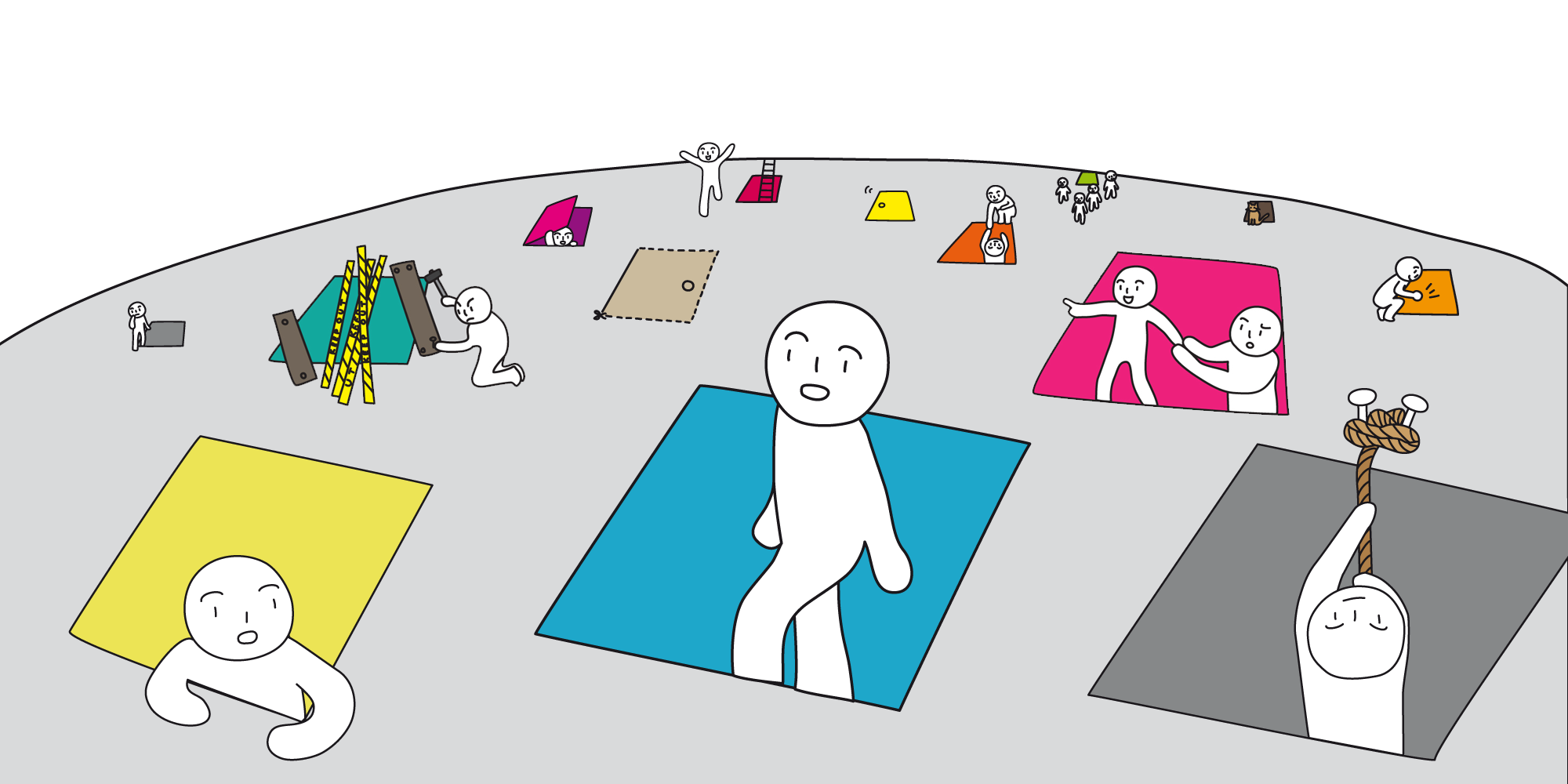research
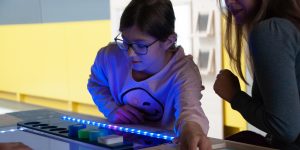
Music Research Lab
mica – music austria (AT), FH St. Pölten (AT), Ars Electronica (AT)
Festival-goers are invited here to produce sounds, atmospheres and short pieces of music on their own, which will then be used for digital games, animations, and live-action films or situations.
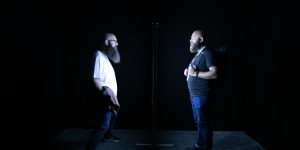
Alter Ego (Version II)
Moritz Wehrmann (DE)
Alter Ego questions the mimetic inter-relationship between two persons. It creates a mental conflict of self-localization, a feeling of self-loss and a feeling of empathy at the same time. The work is foundation for a cooperative with neurophysiological researchers, e.g. with Prof. Alain Berthoz of at Collège de France in Paris. It plays an important role in the research areas of self-other perception and mechanisms of sympathy and empathy research and their disorders, e.g. schizophrenia and autism.
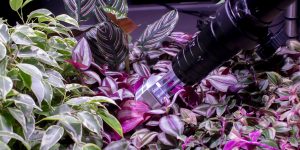
Institute for Inconspicuous Languages: Reading Lips
Špela Petrič (SI)
The Institute for Inconspicuous Languages presents an attempt at comprehending plant life by employing both artificial and natural intelligence to interpret the utterances of thousands of microscopic mouthlets speckled on the underside of each plant leaf. Experience the premonition of an interspecies communication to come.

Presentation: Clinical Applications of Brain Computer Interface Systems
Brain-Computer Interfaces (BCIs) are new technologies that are becoming increasingly popular in medicine. Nowadays, computers and devices can be operated by measuring brain waves. Experience how this technology works and find out what research is currently working on. Erika Mondria, BCI expert at the Ars Electronica Center, will present the functionality of "recoveriX" and "mindBeagle" live.
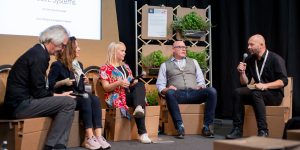
Poetic Systems
Panel Discussion
The panel discussion Poetic Systems looks at system-theoretical approaches at the nexus of art and architecture. Where can system theory, a sociological concept, be applied outside of its original discipline? Which dimensions are opened up by artistic research, an artistic viewpoint or Art Thinking in combination with system theory - and which new points of intersection emerge? Speakers with backgrounds in sociology, architecture, art and scientific research gather here to share their insights on this topic.
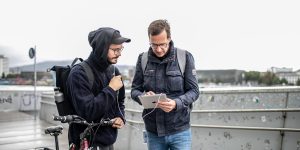
Stereospacer: Nature Space
Michael Markert (DE)
Explore how virtual insect and physical city sounds mix and discover how this experience changes the perception of the area outside the exhibition space.

Tea Session: Laboratory of the Future
Panel Discussion
What is the role of the laboratory in the 21st century? This panel discussion will take a closer look at the constellations and methodologies that form the modern-day laboratory, spanning from scientific research to the Art Thinking methods so frequently employed within the Ars Electronica Futurelab itself. Working at the nexus of art, technology and society, Ars Electronica’s very own atelier and laboratory will be the starting point for a discussion on contemporary art and research practices both within and beyond the Ars Electronica ecosystem.
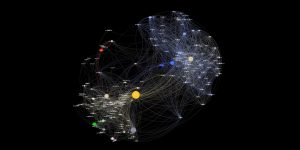
Critical Cartography: Unauthorized Blue Prints
Vladan Joler (RS)
This map is based on a 5-year internet monitoring process and over 400 different cases of violations documented and analyzed by the Share Foundation. Though different methods represented in this map are observed in our local context, we believe that they are also being used worldwide in similar forms. This map is an attempt to interconnect most of those issues into one map, one possible narrative, one possible reading of those processes.
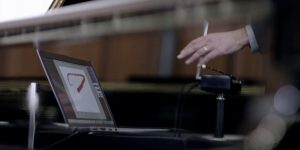
Computers that Learn to Listen
Institute of Computational Perception, Johannes Kepler University (JKU) Linz (AT)
A set of 8 short demo videos on latest results from the world of scientific research: computers learn to listen to and “understand” music; an autonomous drum robot recognizes beat and rhythm; musical computer companions turn music pages for pianists, listen to orchestras, provide synchronized scores to concert audiences, and accompany soloists.

H.C.S (Hybrid Cellular Scaffolding)
Carlos del Valle (ES)
This ongoing research is an interdisciplinary and speculative process that explores – through the lens of BioArt – the fusion between printed scaffolds and non-organic forms of artificial design and decellularized E.C.M (extracellular matrices). In this hybridization of materials, cells of different cell lines will be cultivated.
